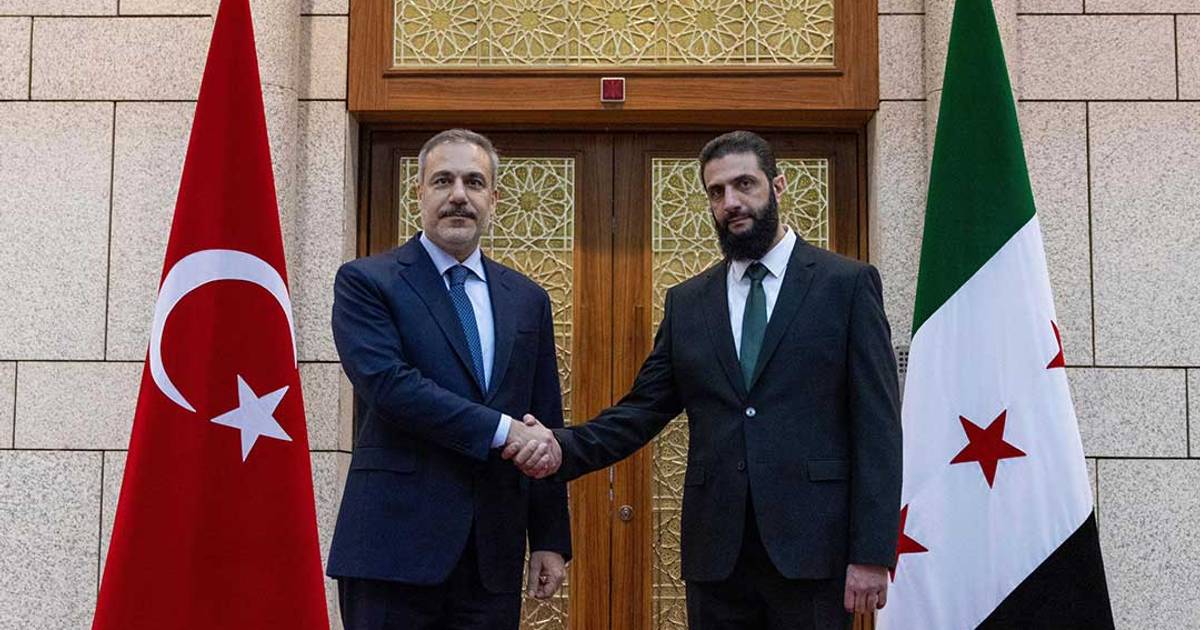The history outlined above reveals how Turkey’s changing policies and positions in Syria – driven by its concerns about non-state threats and the refugee issue – shaped dynamics conducive to Assad’s eventual fall, rather than directly orchestrating it. Recognising this can also help us to make more accurate predictions about the future of Syria and Turkey’s political influence.
Having captured Damascus and set up an interim government for Syria’s transformation, the HTS leadership will play a central role in the country’s future. Turkey has a great stake in limiting the radical Islamist tendencies of the group. HTS’s failure to lead an inclusive political transition accommodating Syria’s diverse religious, ethnic and ideological groups would risk the re-escalation of civil war, mirroring the destabilisation witnessed in post-Gaddafi Libya. Such a development would likely exacerbate the refugee crisis along Turkey’s borders and lead to heightened international support for the SDF/YPG forces against extremists, intensifying Turkey’s concerns over non-state threats. Therefore, the more instability that emerges in Syria as a result of renewed conflicts, the less capable Turkey will be of shaping developments in line with its priorities and interests.
Turkey might be considered to be in a relatively advantageous position that would allow it to have some impact on HTS’s decisions given the maintenance of contacts established in Idlib. The US and Western powers have already sought to leverage Turkey’s contacts with HTS to transmit their warnings and expectations concerning the transition process and the risk of extremist resurgence. However, the main initiative during the transition process will be in the hands of the HTS leadership. As the prime minister of the interim government, the HTS appointed Mohammed al-Bashir, previously the prime minister of HTS’s Salvation Government in Idlib. Almost all officials of the interim government are linked to HTS and its previous ruling body in Idlib. The interim government – which excludes members of other opposition groups including the pro-Turkish SNA – currently assumes all functions and responsibilities in the political transformation process, without any checks or balances. If there were to be a resurgence in HTS’s radical tendencies, it is not clear how Turkey could assert control over HTS’s course of action beyond providing advice and recommendations.
Nevertheless, HTS has adopted a pragmatic stance, showing signs of de-radicalisation and moderation since the advance towards Damascus, which have led to a favourable reception by Western powers and some regional actors. While these powers naturally seek to impact the developments in Syria, the HTS leadership needs to establish political, economic and diplomatic links with the world to remain in power. The US holds effective bargaining chips vis-á-vis HTS, as it could ease Syria’s isolation and remove sanctions on the condition that the HTS leadership takes constructive steps both domestically and internationally, particularly in its interactions with local US allies like Israel and the SDF. Although Arab states are concerned about HTS’s radical origins and the risks of extremism and instability in the region, they also have to engage with the de facto rulers to manage such risks and their interests. Likewise, HTS needs economic cooperation with regional actors for Syria’s reconstruction. Even Russia has moderated its stance towards HTS to avoid further marginalisation in Syria, with Russian state media beginning to refer to HTS as ‘armed opposition’ instead of a ‘terrorist group’. Despite the background, HTS may also soften its approach towards Russia given its status as a permanent UN Security Council member with veto power on key decisions concerning international security and sanctions.
Regional developments since the Arab Spring show the increasing flexibility of ad hoc and short-term alignments in the Middle East, as traditional military alliances remain too cumbersome to deal with transnational threats arising from regional conflicts and failed states. Since the mid-2010s, Turkey has efficiently played into the competition between the US and Russia to manage transnational threats and its refugee problem. The HTS leadership will have observed all these developments which have contributed to its rise to power more closely than international analysts and academics. Now, foreign powers are establishing contacts with the new regime in Damascus, marking a shift from the previous situation in Idlib where Turkey provided HTS’s sole opening to the world. If the HTS leadership is to survive in power, it must follow a similar pragmatic policy exploiting the regional interests of foreign actors and the competition between them. This will naturally pose a limit on Turkey’s influence in Syria in the longer term.
© Murat Güneylioğlu, 2025, published by RUSI with permission of the author
The views expressed in this Commentary are the author’s, and do not represent those of RUSI or any other institution.
For terms of use, see Website Ts&Cs of Use.
Have an idea for a Commentary you’d like to write for us? Send a short pitch to commentaries@rusi.org and we’ll get back to you if it fits into our research interests. Full guidelines for contributors can be found here.
